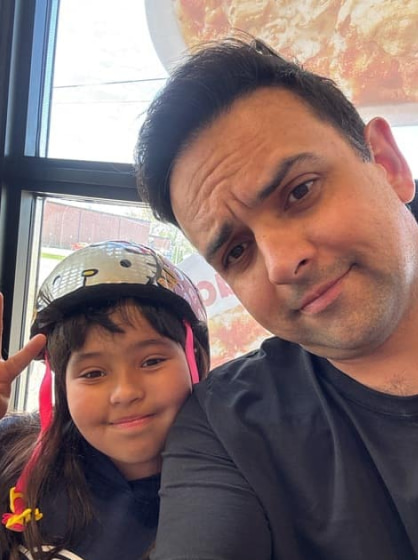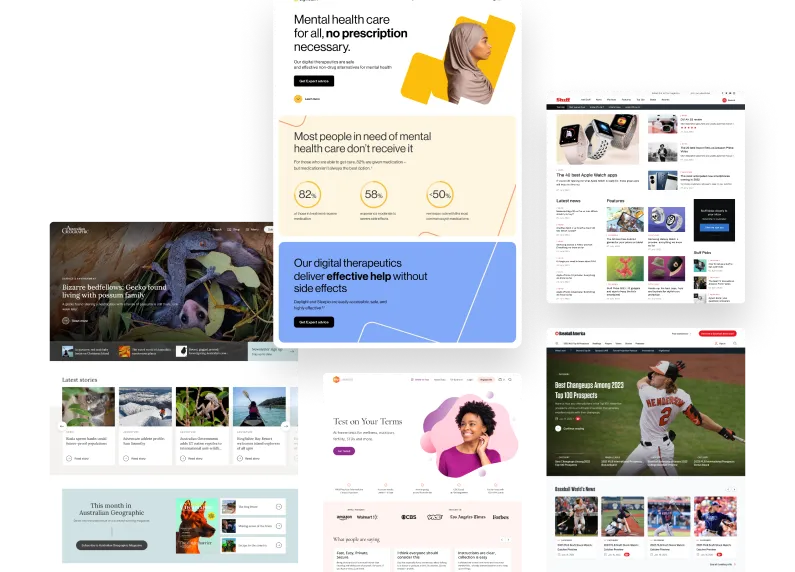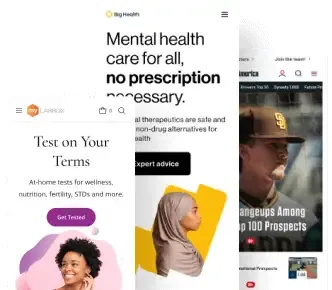Every year on October 11th, the world celebrates International Day of the Girl Child, a day dedicated to recognizing the unique challenges girls face globally and advocating for their rights. Established by the United Nations in 2012, this day is a powerful reminder of the need to empower young girls and ensure equal access to education, health, and personal development.
The significance of this day lies in its global perspective; it highlights the disparities between genders in many parts of the world. UN Women reports that discrimination, violence, and limited access to education and health services often affect girls. The theme for 2024, “Empowering Girls for a Sustainable Future,” emphasizes the need to invest in girls’ education and well-being as a pathway to achieving broader societal goals.
At XWP, we recognize the importance of this day and the role we play in advocating for girls’ rights and empowerment. Celebrating International Day of the Girl Child is about honouring the achievements of girls and women worldwide and reinforcing our commitment to fostering an environment where every parent and caregiver has the resources and support needed to uplift the next generation of girls.
Embracing flexible work: supporting parents and caregivers in empowering girls
As we reflect on the significance of this day, it is clear that empowering girls begins with empowering their parents and caregivers.
At XWP, our flexible work culture allows parents to be more present in their children’s lives, giving them the time and opportunity to support their daughters in meaningful ways. In a world where traditional work structures often demand long hours and take parents away from their families, flexibility is key to fostering strong, nurturing relationships between parents and their children.
In addition, women have predominantly taken on caregiving responsibilities, often juggling multiple roles, while society expected men to focus solely on their careers. However, our approach at XWP fosters an environment where both men and women can share these responsibilities more equitably. The flexibility of remote work empowers fathers to be more present in their daughter’s lives, participating in their upbringing and supporting their development every step of the way.
Stories of empowerment: parents supporting their daughters’ futures
To celebrate International Day of the Girl Child, we asked parents of girls—ranging from ten months to twenty years old—how they are empowering their daughters. Their stories reveal the powerful role parents and caregivers play in shaping confident, ambitious young women who are ready to face the challenges of tomorrow.


Question – How do you encourage your daughter to envision and pursue her future goals?
Marco: With all the trials and errors, I’m an active listener to her dreams and desires and provide experiences that allow her to explore them. We celebrate the wins and try to learn lessons along the way, especially when things don’t go as we’d like to.
I also try to provide space for her to make decisions — which sometimes can include tradeoffs — often pointing out how to base such decisions but allowing her to pursue the answers to why.
Milana: I’m trying to be a living example in everything I preach as a parent. We talk a lot about how it feels to want something, to work and fight for it, and to achieve it. It’s rarely exciting all the way through and it never feels like a big deal when you actually achieve it. I believe it’s important to develop a critical understanding of your own motivations and to recognise when it’s time to push and when to reconsider.
Question – What opportunities or resources do you think are most important for empowering young girls like your daughter?
Fernando – Exposure to strong role models, access to educational resources, and opportunities to explore a wide range of interests are key. I believe providing platforms where girls can learn about tech, leadership, and problem-solving from women who are already thriving in these fields is incredibly empowering.
Edmund – A supportive environment, one where failures are seen as opportunities for growth.


Question – How do you discuss topics like gender equality and human rights with your daughter?
Emily: My daughter is a fierce advocate of the LGBTQ+ community and is passionate about creating spaces for people of all backgrounds and perspectives to share their voice. We’ve discussed at length the idea that you don’t have to agree with someone’s opinions or choices to have empathy and respect for their right to a different lived experience.
Alex: My daughter is only 4 but she’s already being exposed to different cultures and different families. One of her friends has two moms, we don’t assume to know how someone identifies, so we teach her to ask, people come in different colours, shapes and sizes, we teach her to notice, to compliment and to ask if she’s curious. And we always remind her to be kind.
Question – What skills or qualities do you think are crucial for girls to develop to become future leaders?
Marcin: Self-confidence is crucial for girls to become future leaders. Additionally, being assertive helps them effectively communicate their ideas and stand their ground.
Caitlyn: I ensure my daughter possesses kindness, empathy, and confidence in herself. I remind her to stay curious, ask questions, and stand up for her beliefs. Ultimately, I want her to be herself and not let others’ opinions or thoughts sway who she is to her core. Be yourself, and you will do amazing things.


Question – How do you balance protecting your daughter while also encouraging her independence and decision-making abilities?
Alex: My daughter is still young, so I try as much as possible to be there for her to keep her safe, but otherwise, let her try. If she’s doing something that I think might be dangerous, I’ll ask her if she has a plan or if her body feels safe to help her learn how to spot danger, but if she says she’s feeling safe, I let her be. I want to teach her to trust herself, to be confident and to try…even if she fails.
Myles: Protection changes as my daughter gets older. Starting young, she has always known I am involved in her life enough to help her in a meaningful way. As she has gotten older you step back and let her make new mistakes and recover herself. I am fortunate enough to have been able to give her life experiences (small and big) that have allowed her to ‘spread her wings’, and pursue passions and adventures. I am lucky enough that we have developed the relationship that she can reach out to me for advice, and protection, as she needs it.
Question – In what areas do you think society needs to improve to better support girls’ aspirations and potential?
Marcin: As a society, we need to eliminate prejudice and recognize that talent is not determined by gender. This is especially important in fields like technology and engineering, which are often dominated by men.
Milana: Education. Education. Education. Education for parents and education for kids, boys and girls. Society can, and has been, taking many things from women all over the world. But education can take you places you never dreamed of and is something no one can take away from you.


Question – How has your perspective on raising a daughter changed as she’s entered adolescence?
Emily – Ah, this one is tricky! I think as parents, we always want to protect our daughters, but as they grow up we need to empower them to advocate for themselves and respect their right to independence. As my daughter progressed through the teenage years I’ve been there to support her, but try to give her the space and opportunities to make her own decisions (and sometimes make mistakes so that she can learn from them!). It’s not easy to “let go” in this way, but it’s a crucial step in my daughter’s journey to becoming a confident adult.
Question – What advice would you give to other parents or guardians about nurturing a girl’s vision for her future?
Alex: Try as much as you can to stay out of her way. Our daughters have visions, opinions and plans. We don’t need to intervene or comment as often as we do. Even if it’s from a place of trying to help, we should try to refrain from giving advice. Ask questions, be curious, focus on understanding their thoughts, wishes and dreams but let them go and let them be, you’ll be amazed at the wonderful things they come up with.
Landon: Actively support and engage in her interests. Create opportunities for her to explore various activities and participate alongside her, sharing in her learning experience. Instill in her the understanding that her worth extends far beyond societal expectations or external perceptions. By doing so, you’ll help cultivate her self-confidence, broaden her horizons, and empower her to envision a future limited only by her aspirations and determination.


Question – As someone working in a tech-focused company, have you considered introducing your daughter to STEM concepts and opportunities? Has she shown any interest?
Edmund: Yes! My daughter’s preschool does include STEM lessons in their curriculum and she enjoys it. As she grows bigger I intend to share with her more about programming and bring her to attend workshops.
Fernando: Absolutely! I’ve introduced my daughter to coding and problem-solving games. While she’s still exploring her interests, I want her to see that technology isn’t just a boy’s club—it’s a field where she can make a real impact if she chooses to.
Question: How do you think we can make fields like web development and software engineering more appealing and accessible to young girls?
Marcin: create an open and friendly environment and set salaries based on skills, not gender.
Myles: By continuously asking young girls what they need to make it appealing and accessible. I suspect many of the answers will come from what makes it ‘unappealing and inaccessible’. Stop doing those. Also, by ensuring they don’t feel alone in their pursuit (girls coding days? mentors?). Like most people, I feel they want to feel like they belong and blockers are not put in their way, especially just because they are a girl.
Empowering the next generation: key takeaways
Talking with our colleagues gave us some great insights into how we can support the next generation of girls. Girls and women have made some incredible progress over time, but there are still many barriers to overcome—particularly in fields like science and technology. As we share our experiences of raising strong and empowered girls, we play a part in shaping a future that supports them. It’s important for girls to have strong role models who expose them to diverse experiences. When they see inspiring people and have access to new opportunities, they begin to imagine what’s possible for themselves.
If we can create an environment rooted in empathy and respect, they will feel encouraged to voice their thoughts, learn from mistakes, and build the resilience needed to navigate challenges—ultimately nurturing the confidence and capability to become leaders in whatever path they choose.
All in all, these stories show us that raising empowered girls isn’t just about providing resources—it’s about creating supportive, inspiring environments where they can thrive.


